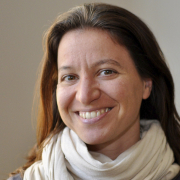
Copyright : Laboratoire LEMAR- 2018
Arianna Servilli
National
LabexMer, Axe 6
Start Date
03/04/2025
End Date
03/04/2025
Anthropogenic CO2 emissions are absorbed by the world’s oceans, leading to decreasing marine pH and carbonate levels, a process known as ocean acidification (OA) that is threatening marine ecosystems. OASYS proposes to address critical gaps in knowledge and shortcomings of previous OA research by investigating the life-traits and sensory responses of 3 temperate marine species presenting different sensibilities to OA i.e., a demersal fish (European seabass Dicentrarchus labrax), a bivalve (Pacific oyster Crassostrea gigas) and a gastropod (European abalone Haliotis tuberculata L.). We will expose the animals to PCO2 conditions corresponding to present-day (pH 8.1) and a high CO2 emission scenario predicted for 2100 (pH 7.6) and to evaluate the impacts of OA on physiology (e.g. growth, calcification, reproduction), ecologically-relevant behaviours (e.g. feeding behavior, predator-prey interaction, settlement behaviour), and sensory capacities. In addition, OASYS will shed light on understanding the inter-generational dimension of OA by examining whether genitor acclimation to high PCO2 affects offspring phenotypes. Lastly, OASYS represents an integrative and multi-approaches project that will consider the impacts of OA on physiology, sensory performance and behaviour of temperate marine organisms at different organizational levels (gene, organ, organism) and life stages (larvae, juvenile, adult). Altogether, OASYS will evaluate the possible effects of OA on individual fitness and ultimately, on the alteration of ecosystem dynamics and structure, which would potentially impact ecosystem services.
NUNES Flavia, Ifremer Centre Bretagne, DYNECO, Laboratoire d’Ecologie Benthique Côtière (Lebco).
BORDENAVE Stéphanie UMR 7208 BOREA (MNHN/UPMC/CNRS/IRD/UCBN) – Station de Biologie Marine du MNHN.
MARTIN Sophie UMR 7144 AD2M – Station Biologique de Roscoff.
DAY Rob Université de Melbourne (Australie) – School of BioSciences.
DUBOIS Philippe Laboratoire de Biologie Marine – ULB Bruxelles (Belgique).

 GEOVIDE
Scroll to top
GEOVIDE
Scroll to top